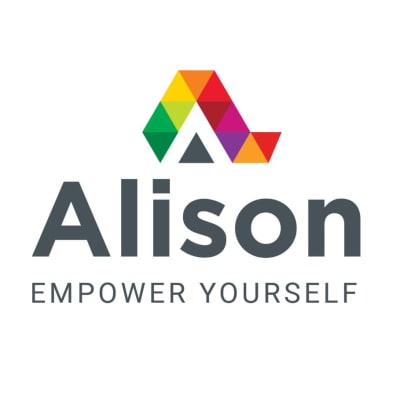
Food Safety Training - Safe Practices and Procedures (Free Online Course With Certificate)
Alison Free Online Learning

Key Information
Campus location
Online
Languages
English
Study format
Distance Learning
Duration
1 - 3 hour
Pace
Full time, Part time
Tuition fees
Request info
Application deadline
Request info
Earliest start date
Request info
* free course
Scholarships
Explore scholarship opportunities to help fund your studies
Introduction
This free online course in Food Safety course teaches you about safe practices and procedures within food service operations. A solid sanitation and safety program is vital for any food service operation, big or small. By the end of the course, you'll know all about the individual cleanliness guidelines applicable to everyone within sanitation and safety operations, as well as the important role the manager plays in these operations.
This Free Online Course Includes:
- 1.5-3 Hours of Learning
- CPD Accreditation
- Final Assessment
Alison Certificates
All Alison courses are free to enrol study and complete. To successfully complete this Diploma course and become an Alison Graduate, you need to achieve 80% or higher in each course assessment. Once you have completed this Diploma course, you have the option to acquire an official Diploma, which is a great way to share your achievement with the world.
Your Alison Diploma is:
- Ideal for sharing with potential employers
- Include it in your CV, professional social media profiles and job applications.
- An indication of your commitment to continuously learn, upskill & achieve high results.
- An incentive for you to continue empowering yourself through lifelong learning.
Alison offers 3 types of Diplomas for completed Diploma courses:
- Digital Diploma: a downloadable Diploma in PDF format immediately available to you when you complete your purchase.
- Diploma: a physical version of your officially branded and security-marked Diploma, posted to you with FREE shipping.
- Framed Diploma: a physical version of your officially branded and security-marked Diploma in a stylish frame, posted to you with FREE shipping.
Gallery
Scholarships and Funding
Curriculum
This free sanitation course will first introduce you to personal cleanliness and hotel cleanliness. You will learn the guidelines for manual cleaning and how to correctly sanitize dishware, what to look out for when purchasing and receiving food from an outside supplier. Then you will learn how to store food in the correct environment, how to prepare foods hygienically, and how to prevent and avoid accidents such as burns or cuts. You will also cover foodborne illnesses and examine how they are caused.
Next, the course will guide you through the crucial role of management in maintaining food safety standards. You will learn how to handle incidents and fill out reports in conjunction with OSHA regulations. You will also learn the guidelines for carrying out inspections to ensure that safety and sanitation procedures are being followed by everyone in the workplace consistently.
This online food safety training course will be of great interest to people who wish to start their own food service operation or who are already working in the food industry. It will also help to provide your food service operation establishment with a good reputation for cleanliness and sanitation. This course is also ideal for those who want to know more about preparing food in a sanitary manner in their own personal lives. So, check out the course and start handling your food correctly today!
Module 1
Personal Cleanliness And Health
Learn about the importance of personal cleanliness for food safety.
Module 2
Sanitary Food Handling
Learn about the procedures used in sanitary food handling.
Module 3
Food Service Accidents
Learn about general causes and preventive measures for accidents in the food service industry.
Module 4
Food Service Incidents, Inspections and Illnesses
Learn about the role of management in maintaining food safety standards and Illnesses caused by bad and/or contaminated food.
Module 5
Course assessment
Program Outcome
What You Will Learn In This Free Course
- Describe sanitary food handling practices.
- List correct cleaning and sanitizing procedures.
- Outline safe practices in the food preparation area to avoid accidents.
- List personal cleanliness guidelines for handling food.
- Describe the role and influence of the manager in the food service sanitation and safety operation.
Complete This CPD Accredited Course & Get Your Diploma!
Certify Your Skills
A CPD-accredited Alison Diploma/Certificate certifies the skills you’ve learned.
Stand Out From The Crowd
Add your Alison Certification to your resume and stay ahead of the competition.
Advance in Your Career
Share your Alison Certification with potential employers to show off your skills and capabilities.
Career Opportunities
Food Service Manager
If you thought the Food Service Manager’s role is to prepare food, you got it all wrong. Food Service Managers are at the forefront of managing the food industry and ensuring that customers experience high-quality dining standards. Bring your creativity, business strategies, and networking skills to the table - the adventure is ready to unfold before you.
Food Scientist
Food Scientists have a tall order to honour - come up with food that will appeal to all the senses of their employers and potential customers while nourishing their bodies and soul at competitive prices. They ensure that food processing centres meet health guidelines or research to improve the taste of a food product while adding to its health benefits.
Supervisor Of Food Preparation And Serving Workers
The food service industry is one of the basic yet most complex cornerstones of globalisation and civilisation. The industry owes a major part in its reigning status to Supervisors of Food Preparation and Serving Workers, who manage to turn the intricate procedure of preparing and serving food into a delightful act.
Hospital Food Service Supervisor
A nutritious and suitable diet is an integral part of hospital treatment and a crucial aid to recovery. It is a complex task to ensure that all patients at a medical facility receive balanced and tasty meals on time several times a day. However, Hospital Food Service Supervisors not only make this possible but also make sure to fulfil the individual needs of patients. While not always in the limelight, they make notable contributions to healthcare.